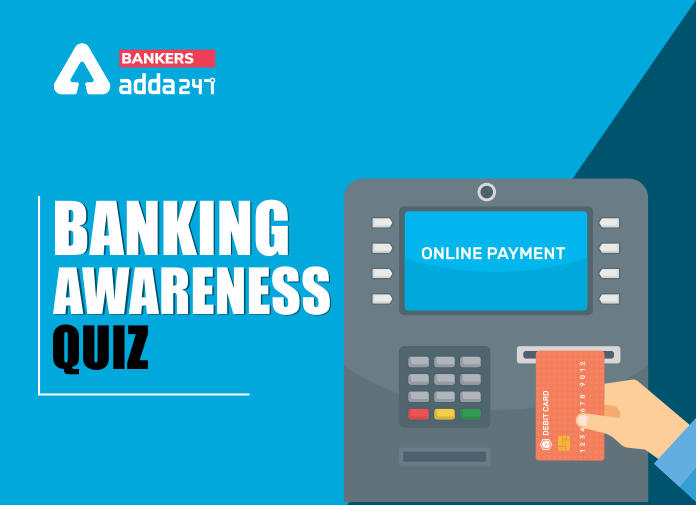Table of Contents
Q1. When there is a risk of loss resulting from inadequate or failed internal processes, people and systems or from external event, it is called
(a) Liquidity risk
(b) Operational risk
(c) Systemic risk
(d) Moral Hazard
(e) None of these
Q2. Which of the following is not a major component of Market Risk?
(a) Equity risk
(b) Foreign exchange risk
(c) Interest rate risk
(d) Credit risk
(e) None of these
Q3. When a bank borrower, or counter party, fails to meet its payment obligations regarding the terms agreed with the bank, it is called
(a) Credit risk
(b) Operational risk
(c) Market risk
(d) Liquidity risk
(e) None of these
Q4. When the bank is not able to have enough cash to carry out its day-to-day operations, it is called
(a) Systemic risk
(b) Liquidity risk
(c) Market risk
(d) Operational risk
(e) None of these
Q5. When a bank chooses the wrong strategy or follows a long-term business strategy which might lead to its failure, it is called
(a) Business risk
(b) Market risk
(c) Operational risk
(d) Credit risk
(e) None of these
Q6. When the actions can lead to the entire financial system coming to a standstill, it is called
(a) Market risk
(b) Systematic risk
(c) Business risk
(d) Equity risk
(e) None of these
Q7. When there is a financial loss to bank arising from legal suits filed against the bank or by a bank for applying a law wrongly, it is called
(a) Market risk
(b) Systematic risk
(c) Equity risk
(d) Legal Risk
(e) None of these
Q8. What is the risk called when one bank makes the decision about how much risk to take, while someone else (like government) bears the costs if things go badly?
(a) Market risk
(b) Equity risk
(c) Moral Hazard
(d) Systematic risk
(e) None of these
Q9. When bank’s image and public standing is in doubt and leads to public’s loss of confidence in a bank, it is called
(a) Market risk
(b) Reputational risk
(c) Operational risk
(d) Moral Hazard
(e) None of these
Q10. When the risk of losses in on- or off-balance sheet positions arise from movement in market prices, it is called
(a) Operational risk
(b) Liquidity risk
(c) Systemic risk
(d) Market risk
(e) None of these
Practice More Questions of Banking Awareness for Competitive Exams:
Solutions
S1. Ans.(b)
Sol. The Basel Committee on Banking Supervision defines operational risk “as the risk of loss resulting from inadequate or failed internal processes, people and systems or from external events. This definition includes legal risk, but excludes strategic and reputation risk.”
S2. Ans.(d)
Sol. The major components of Market risk are: Interest rate risk, Equity risk, Foreign exchange risk, Commodity risk.
S3. Ans.(a)
Sol. When the customers show their inability to pay the loan amounts taken from bank, is called credit risk.
S4. Ans.(b)
Sol. Liquidity means a bank has the ability to meet payment obligations primarily from its depositors and has enough money to give loans. So liquidity risk is the risk of a bank not being able to have enough cash to carry out its day-to-day operations.
S5. Ans.(a)
Sol. When a bank chooses the wrong strategy or follows a long-term business strategy which might lead to its failure, it is called as Business risk.
S6. Ans.(b)
Sol. It can also be stated as the possibility that default or failure by one financial institution can cause domino effects among its counter parties and others, threatening the stability of the financial system as a whole.
S7. Ans.(d)
Legal risk is the risk of financial or reputational loss that can result from lack of awareness or misunderstanding of, ambiguity in, or reckless indifference to, the way law and regulation apply to your business, its relationships, processes, products and services.
S8. Ans.(c)
Sol. Moral hazard is the risk that a party has not entered into a contract in good faith or has provided misleading information about its assets, liabilities, or credit capacity.
S9. Ans.(b)
Sol. Reputational risk is the risk of damage to a bank’s image and public standing that occurs due to some dubious actions taken by the bank.
S10. Ans.(d)
Sol. The market is always fluctuating so there is always market risks in the banking systems. So it can go up and down, and when down banks will charge more interest rates from the customers.




 The Hindu Review October 2022: Download ...
The Hindu Review October 2022: Download ...
 IBPS PO 2024 Salary, Annual Package, Sal...
IBPS PO 2024 Salary, Annual Package, Sal...
 World Veterinary Day 2024, Theme, Histor...
World Veterinary Day 2024, Theme, Histor...



